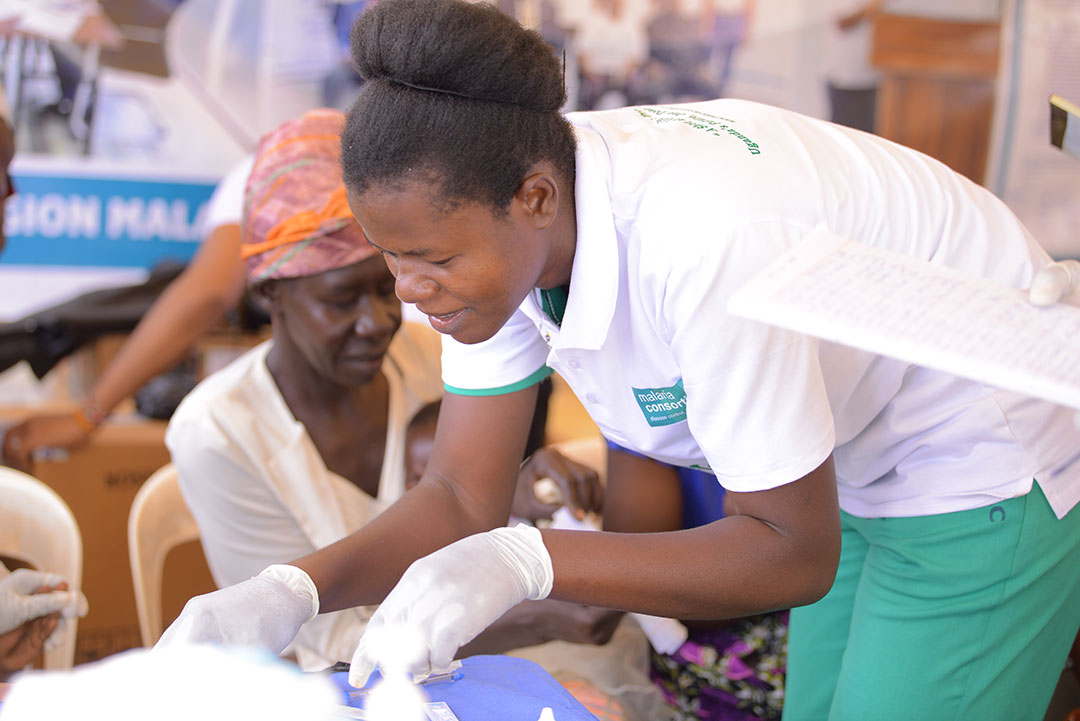How to harness the power of health data to improve patient outcomes
Despite the staggering amount of health data generated by the sector, 97% of it goes unused. Used effectively this data could improve health outcomes.
- 10 January 2024
- 5 min read
- by World Economic Forum

The amount of data that healthcare churns out with each passing second is almost incomprehensible. By 2020, it was estimated that globally the healthcare sector would generate 2.3 zettabytes of data – that's 2,300,000,000,000,000,000,000 bytes. Equivalent to 2.3 trillion DVDs of data.
We are in the midst of a global digital health revolution. The ability to harness this vast mass of health data offers the promise of better and more effective treatments and cures, while freeing up scant resources often from already stretched health systems. Digital could be a key lever towards Sustainable Development Goal (SDG) Target 3.8 of achieving Universal Health Coverage (UHC), one of the three health topics covered by a UN High-Level Meeting at the UN General Assembly this year.
In the evolving landscape of global health, the imperative for efficient and value-driven healthcare systems is paramount. The increased complexity, lack of coordination and standardization, coupled with the vast untapped potential of health data, underscore the urgency for transformative change. Leading nations, including the G7 and G20, recognize the importance of health data, emphasizing international cooperation for digital health and data utilization. Japan's collaboration with the EU serves as a model for cross-border health data flows, aligning with global data protection standards.
Despite the exponential growth in health data, a staggering 97% of it goes unused, presenting a unique opportunity to enhance health system performance. The key lies in creating sustained linkages, transforming vast amounts of unstructured information into clinically actionable insights, and ultimately improving the flow of data to supporting optimal care and interventions beyond clinic walls. Value-driven data and digital solutions have the potential to act as a "force multiplier" for more sustainable, resilient, and effective healthcare systems.
Key issues relating to health data access
The COVID-19 pandemic taught us many digital lessons. In a global crisis, the ability to rapidly collect and understand vast quantities of health data to manage the spread of a virus is critical. Increased telehealth utilization, contact tracing, outbreak tracking, virus testing and medical research, all generated more health data than many organizations anticipated or were prepared for. But in tandem, healthcare organizations often struggled to find the basic information they needed to support patient care.
Three critical themes emerged: the sheer volume of data; data privacy concerns; and the need for interoperability. The seamless collaboration of different systems. But it's also clear that these three factors can sometimes conflict with each other and finding the right balance is crucial.
With over 2.3 zettabytes of global health data, accessibility to the right data is crucial for innovations like artificial intelligence (AI). However, the siloed and highly regulated nature of health data poses challenges. Balancing data privacy while finding ways to share anonymized information is key to fostering innovation.
Improving data capture, sharing and usage
Recent analysis by the World Economic Forum found that a typical hospital produces 50 petabytes per year. This mass of information is comprised of clinical notes, lab tests, medical images, sensor readings, genomics, and operational and financial data. Yet, 97% of all global data produced by hospitals each year goes unused. Data is the lifeblood of AI-powered research, narrowing the data source risks and diluting the power of the analysis.
Have you read?
Wearable tech, smartphones, and apps also contribute valuable user-generated health data. Such user-generated data can supplement existing clinical data, allowing individuals to monitor chronic conditions at home and improve outcomes by providing early access to data that identifies problems before they become serious. But this also means making sure consent, security, transparency, and accountability are hard-wired into any system.
If the challenges of volume of data and privacy can be overcome, then the third challenge comes into play. Interoperability requires the custodians of the data to share accurate, timely information in a secure and controlled manner using a common language, whilst authorized users of the information, such as providers, should have the ability to pull (or push in some cases) data from multiple sources, integrate and augment that data and expose this data as aggregated information to a broader audience. The problem is there is a lack of common standards for connected health services.
Fostering a digital health ecosystem
But how do we create a fair and equitable system that realises the game-changing potential of this vast volume of data to drive better patient outcomes?
Creating this digital health ecosystem is top of mind for global partners. The process of bridging the digitally divided world of health systems has strong momentum, with numerous global bodies – including the World Health Organization, PATH and Transform Health, among many others – charting the path and making impressive strides. But there is still a critical need to accelerate and amplify the impact of these efforts. Finding the best solutions will only happen by bringing together organizations from all sectors and all geographies. This means uniting public, private and civil organizations across healthcare, insurance, life sciences, technology, retail and consumer sectors, finance, and many other areas. This is what the Forum does best.
Building on its longstanding commitment to systems transformation, the Forum is now spearheading an initiative focused on transforming healthcare through digital health with a value-driven approach through an initiative called Digital Healthcare Transformation, a natural progression from its foundational work on value-based healthcare. This initiative brings digital transformation and high-value care together with the aims of improving patient outcomes.
Value driven data and digital healthcare can make a difference to deliver high-value care – by using data and analytics at an entirely different level. The ability to harness and translate this vast mass of health data offers the promise of better and more effective treatments and cures while freeing up scant resources often from already stretched health systems.
At this year's World Economic Forum Annual Meeting, leaders will unite to champion responsible global collaboration for healthcare transformation. A dedicated strategic session seeks to centre the global industry's voice within key international forums like the G20, G7, and EU agenda. By advocating for uniformity to prevent fragmentation and driving innovative data approaches, this alignment rallies both public and private stakeholders worldwide toward standardized health data sharing practices, fostering a harmonized healthcare landscape and prioritizing patient-centric outcomes.
Let's work together to set a global standard for health data management, ensuring its secure and ethical use, thereby enhancing global health security, and driving healthcare innovation centered around improved health outcomes.
Written by
Judith Moore, Head, Healthcare Initiatives, World Economic Forum
Yasmin Dias Guichot, Project Lead, Health Systems Transformation, World Economic Forum
Website
This article was originally published by the World Economic Forum on 5 January 2024.









